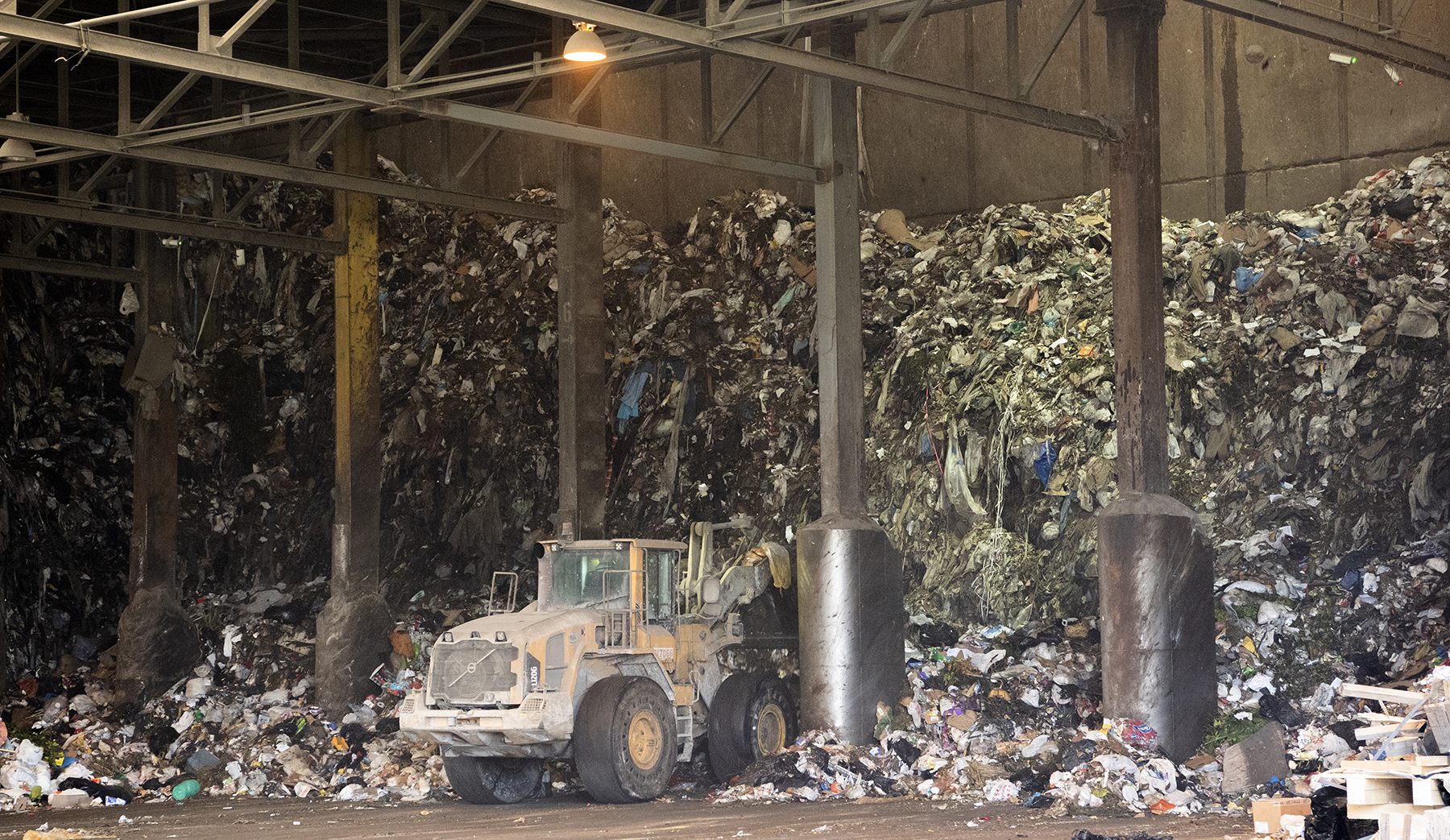A facility that Long Beach has used to burn hundreds of tons of trash daily for the past 35 years is expected to be decommissioned in the coming weeks, which will require the city to divert its trash to landfills — a process that is generally more costly.
Since 1988, The Southeast Resource Recovery Facility (SERRF) has converted the city’s trash into to electricity. The facility had processed waste for nearly 150 jurisdictions but had become the target of environmental advocates who said it was creating toxic pollution for nearby homes.
It’s unclear if the decommissioning of SERRF will lead to more rate increases for residents but the city generally charges the “cost of service” for city services and utilities. The cost of transfering trash to landfils has been higher in the past during times when the facility was out of service.
In recent years, the facility has been dogged by a growing repair bill and state legislation that stripped the facility of the recycling credits that Long Beach and others received for burning its trash.
SERRF had been operating at an annual loss of about $4 million but Assembly Bill 1857’s passage in 2022 expedited those losses with the city estimating the facility would run at a monthly deficit of $2 million.
A Jan. 19 city memo said that decommissioning the site could start as soon as Feb. 1 rather than the city pouring millions more into the facility for upgrades to keep SERRF running, something Bob Dowell, the city’s director of Energy Resources, said could have resulted in a $104 million deficit over five years.
“Without having a big pile of money to put into that it’s really hard to make a different decision,” Dowell said.
“It really painted a really bleak outlook for the site. but we have a wonderful opportunity to remove it and build something that provides a regional solution for the city and others.”
Dowell is referring to the city’s efforts to have SERRF transitioned into an organic waste processing site so it can reach compliance with another state law, Senate Bill 1383, which now requires cities to divert things like food scraps, yard clippings and other compostable materials from landfills.
The law is intended to reduce methane emissions in the state, which are 28 times more potent at trapping heat in the atmosphere; however, the bill came with an unfunded mandate and has left cities scrambling to find facilities to process organic waste.
Dowell is recommending that the council approve an exclusive negotiating window with the Maryland-based Bioenergy Devco, LLC, to possibly build a processing center at the old SERRF site. However, it could be several years before that’s operational if the city is able to strike a deal.
“Everyone’s always hopeful it can get done sooner but when you’re dealing with something new like this it’s hard to tell what it it will entail,” Dowell said about the three to four-year window the city expects for construction to be done.
The proposed facility could process up to 314,000 tons of organic waste annually, Dowell said, with about 400 tons per day, if things are sorted perfectly, coming from Long Beach accounts.

“So we’re hoping that this will also be a regional solution, Dowell said, noting that there could be a lot of extra capacity for the proposed project to process organic waste for neighboring cities similar to how SERRF used to burn other cities’ trash.
But he pointed out that some trash will still go to landfills, something that didn’t happen with SERRF. Long Beach had been sending about 800 tons per day to the facility to be burned where it was converted into energy. Now, the city will have to find a new way to dispose of it.
The current solution is to send all the city’s trash to a landfill until the city begins its organic recycling program, something that’s expected to happen by the end of this year.
The City Council is expected to approve a $23.8 million contract Tuesday that will be used in part to pay for new green cans that will be distributed to residences and businesses once the program goes into effect.
For now, the cost differential for the city could be about 30%, Dowell said. Long Beach had a locked-in rate of $60 per ton to process trash at SERRF but Public Works officials said in November that the rates it paid to transfer trash to landfills while SERFF had been out of service in the past was between $74 and $77 per ton.
Long Beach saw two rate increases in 2023 with a larger increase on the horizon after the organic recycling program starts.
While the deal with Bioenergy Devco still needs to be negotiated, Dowell said an early proposal included a $60 per ton rate for the city to process future organic waste at the site, but Dowell added the city could still try to lock in a better price.
Under the proposal, the city would take over the organic processing site after 20 years at no cost, Dowell said.
Construction of any new facility can’t begin until environmental studies are completed and SERRF is fully decommissioned and demolished, a process that Dowell said could take about 15 months.

